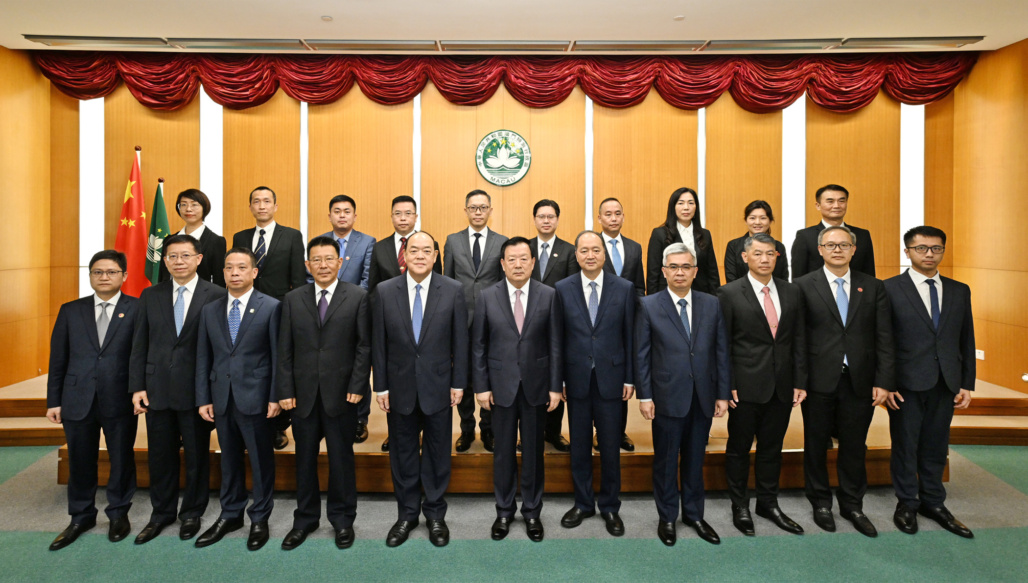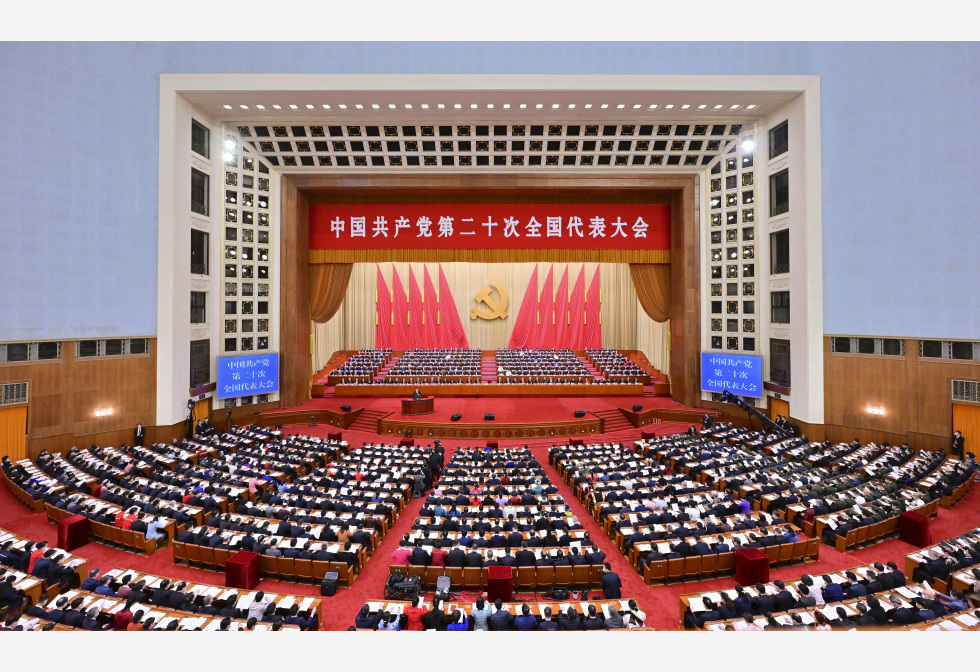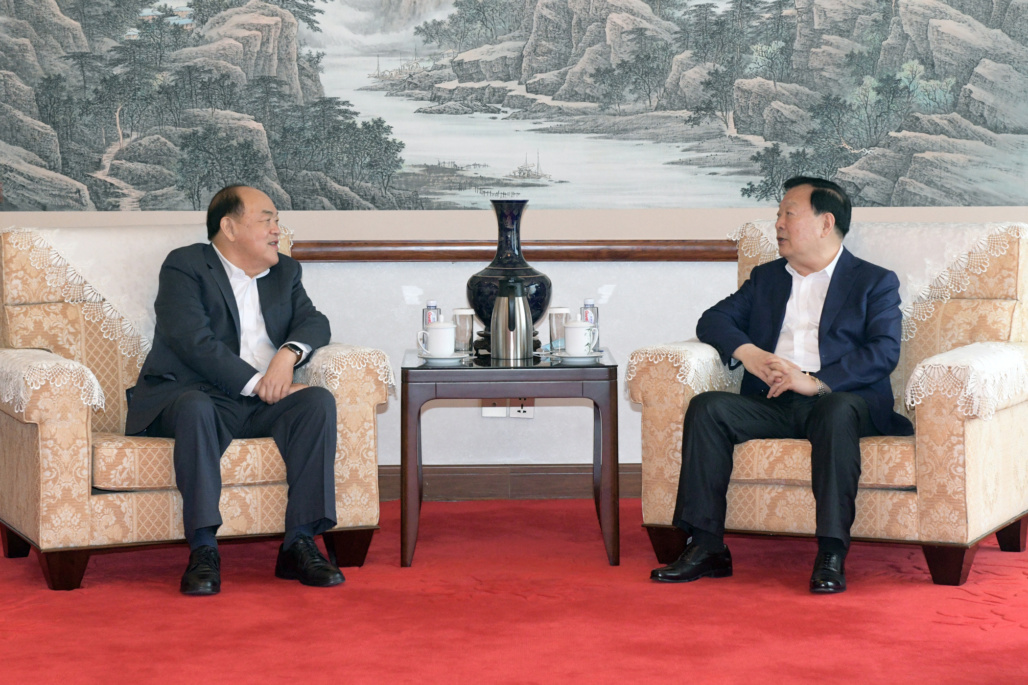[ad_1]
On June 5, 2023, the party organizational learning group under the Hong Kong Macau Affairs Office (HKMAO) carried a long article in Guangming Ribao to sum up the practice of “one country, two systems” as espoused by President Xi Jinping. It is necessary to go through the HKMAO’s summary and see how its interpretation has been shaping the recent and ongoing development of Hong Kong and Macau.
The long article contained the ten major points that deserve our attention and analysis.
First, Hong Kong and Macau must accurately and resolutely implement the principle of “one country, two systems,” whose basic tenet is to protect national sovereignty, safety, developmental interest and the economic prosperity of Hong Kong and Macau. Most importantly, the relationships between “one country” and “two systems” has to be understood in terms of the subordination of “two systems” to “one country.” Without one country’s socialist system and its leadership of the Communist Party of China, the foundation of the “two systems” cannot be protected.
Second, it is necessary to resolutely implement the central authorities’ “comprehensive jurisdiction” and its unity with the high degree of autonomy of the special administrative regions. Again, the “comprehensive jurisdiction” of the central government is the origin leading to the “high degree of autonomy” of the special administrative regions. On matters affecting the development and stability of the special administrative regions, the central authorities develop their leading role while respecting and protecting the regional autonomy.
Third, it is necessary to implement the principle of “patriots governing Hong Kong and Macau.” The implementation of this principle relates to the tenet of protecting national sovereignty, safety, developmental interest, and the two places’ economic prosperity. The “patriots” need to govern the major positions of the political structures of the two special administrative regions, and they are expected to protect the well-being of citizens of Hong Kong and Macau.
Fourth, it is necessary to govern Hong Kong and Macau in accordance with the law. Rule of law is the most reliable and stable way of governance, and as such it is necessary to strengthen constitutional governance and the authority of the Basic Law. The system of improving the rule of law education, including the constitution and the Basic Law, must persist for the sake of stabilizing the path of “one country, two systems.”

Fifth, it is necessary to develop the excellence and special advantages of Hong Kong and Macau whose special functions cannot be replaced. With their motherland as the back support, Hong Kong and Macau are connected with the world with their freedom and openness, outstanding business environment, high level of rule of law, and the conglomeration of international capital and talents as well as the cultural mixture of the East and the West. While Hong Kong maintains its common law system, Macau’s legal system is retained so that both places can become successful with the common objective of building up the “One Belt One Road Initiative” and the implication of achieving a win-win situation.
Sixth, Hong Kong and Macau must develop their economy, improve their livelihood, and tackle the deep levels of contradictions and problems of their socio-economic development. President Xi Jinping has said that “development is not only a permanent topic and a building-up foundation of Hong Kong, but it is also a golden key of solving all kinds of problems.” The long-term and deep levels of contradictions and problems of Hong Kong and Macau must be tackled through development.
Seventh, united front work must be developed for people inside and outside China to support “one country, two systems.” This means that the patriotism of the Hong Kong and Macau comrades, according to Party General Secretary Xi Jinping, must be consolidated so that the task of developing the “one country, two systems” can be promoted.
Eighth, the spirit of the Communist Party of China in the 20th Party Congress will have to be implemented, especially the protection of national security in which the situation of Hong Kong and Macau is “complex” and “serious.” Those activities that are “anti-China” and “making Hong Kong and Macau chaotic” must be resolutely combatted and repelled. It is necessary to guard against and curb those “foreign forces intervening in the matters of Hong Kong and Macau.” As such, it is a must to improve the system and implementing mechanism of protecting national security and to strengthen the standard of Hong Kong and Macau in protecting national security and their national security law.

Ninth, it is important to improve the good governance of Hong Kong and Macau. The chief executive and the government authorities of Hong Kong and Macau are supported with the absorption of “patriotic” elites and excellent talents into the government work. The central government supports the special administrative regions to improve their basic-level governance and governing standard.
Tenth, the “one country, two systems” of Hong Kong and Macau have to be integrated into the developmental blueprint and both places can supplement the mainland. While Hong Kong elevates its international financial and monetary status together with its aviation and shipping industry and its trading centre, Macau builds up its trading centre and platform for China and the Portuguese-speaking countries. Both Hong Kong and Macau are going to develop new industries, attract new talents and propel the development of the Greater Bay Area. Under these circumstances, the well-being, and the sense of safety of the residents of Hong Kong and Macau can and will be enhanced. Lastly, the youth can and will work hard for the “one country, two systems” so that both Hong Kong and Macau can and will contribute to the Chinese renaissance for the next two hundred years.
Analytically speaking, the ten main points delineated above by the HKMAO contain the gist of Beijing’s policies toward both Hong Kong and Macau.
The emphasis on the central government’s national sovereignty, safety and developmental interest was first mentioned in the 2014 White Paper on the Implementation of One Country, Two Systems in Hong Kong – a paper that was published as a response to some Hong Kong politicians who at that time toyed with the idea of launching the so-called Occupy Central Movement to push for political changes. In fact, the origin of “two systems” stems from “one country” – an emphasis mentioned by many mainland Chinese legal experts and authorities on Hong Kong well before the middle of 2014. It was also the 2014 White Paper that first mentioned Beijing’s “comprehensive jurisdiction” over Hong Kong, but at that time many people did not understand its concrete meaning until June 2020 when the national security law was promulgated and when the national security institutions on Hong Kong were established.

The question of “patriots” governing Hong Kong and Macau emerged in the post-2019 turbulence in Hong Kong during which many politicians and political activists challenged the authority of the central authorities. The disqualification of many politicians from Hong Kong’s political institutions, notably the Legislative Council and District Councils, from the late 2019 onwards, and the disqualification of some candidates running for the Macau Legislative Council elections in July 2021 could be seen as the first step leading to the path of grooming and strengthening the “patriots” to govern both Hong Kong and Macau, especially in Hong Kong where the political system was regarded as being infiltrated by elements who were “anti-China” and “making Hong Kong chaotic.” Eliminating these “troublemakers” from the political institutions requires the implementation of the rule of law through the promulgation of the national security law.
Yet, implementing the rule of law alone cannot win the hearts and minds of all residents of Hong Kong and Macau. As such, the central authorities have reminded the necessity of the governments of both Hong Kong and Macau to cope with their deep social contradictions through a whole range of educational, social, housing and welfare policies. At the same time, united front work has to be consolidated, including the focus on youth work, and the strengthened publicity work on people inside and outside Hong Kong and Macau on the implementation of the “one country, two systems.”
To make Hong Kong and Macau function as special places for China’s renaissance and its Belt and Road initiatives, the global talent scheme has been recently implemented. The idea is to attract global and mainland talents into Hong Kong and Macau, which are expected to have clear division of labour. While Hong Kong focuses on its consolidation of international financial and monetary and trade centre, Macau has been reminded to be a platform for China’s closer relations with the Portuguese-speaking countries. Both Hong Kong and Macau are required to accelerate their socio-economic integration with the mainland, especially the Greater Bay Area where Shenzhen’s Qianhai is now cooperating closely with Hong Kong and where the Hengqin-Macau Cooperation Zone is expected to help Macau diversify its economy away from its excessive focus on casino capitalism.
In conclusion, the most recent article published by Guangming Ribao on the summary of “one country, two systems” from the HKMAO perspective is an important work that delineates Beijing’s policy convergence on both Hong Kong and Macau. By convergence, it refers to the similarities in Beijing’s policies of handling the national security, economic prosperity, the people’s livelihood, and the new geopolitical and geoeconomic positioning of Hong Kong and Macau. Both the special administrative regions of Hong Kong and Macau have been reshaped in their political governance through the strengthening work of “patriotic” rule, reengineered in terms of their societal emphasis on harmony and patriotism, reoriented in their economic convergence with the mainland, and reemphasized in their economic development through a clear division of labour, and reminded of their geostrategic sense of not only integrating closely with the mainland’s national developmental plans but also contributing to their motherland’s national security protection, the Chinese renaissance and Belt and Road initiative.
[ad_2]
Source link
